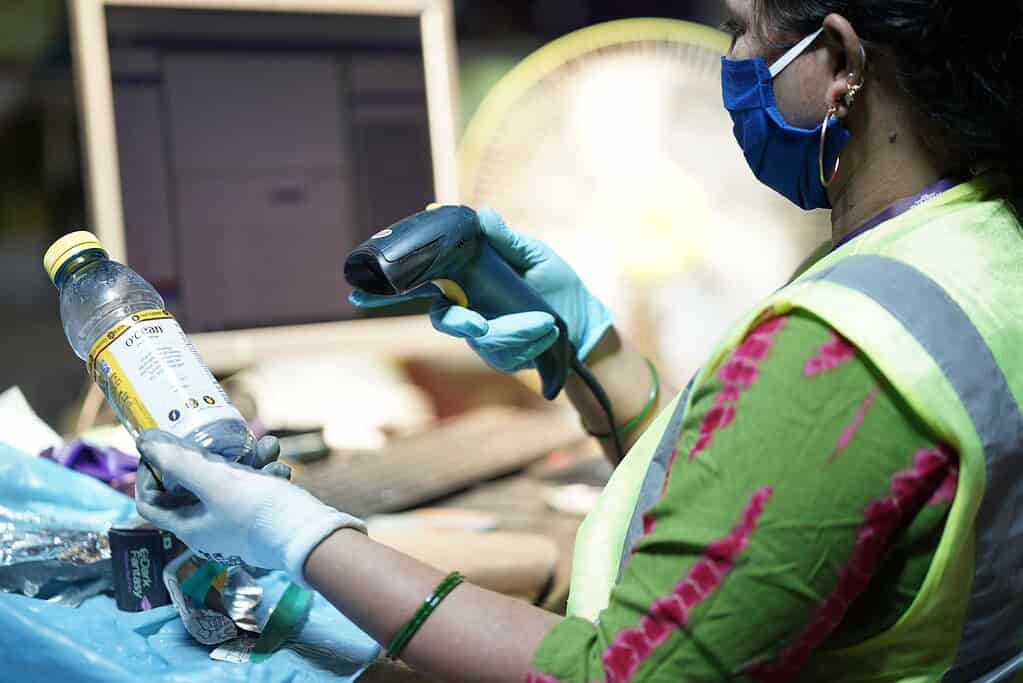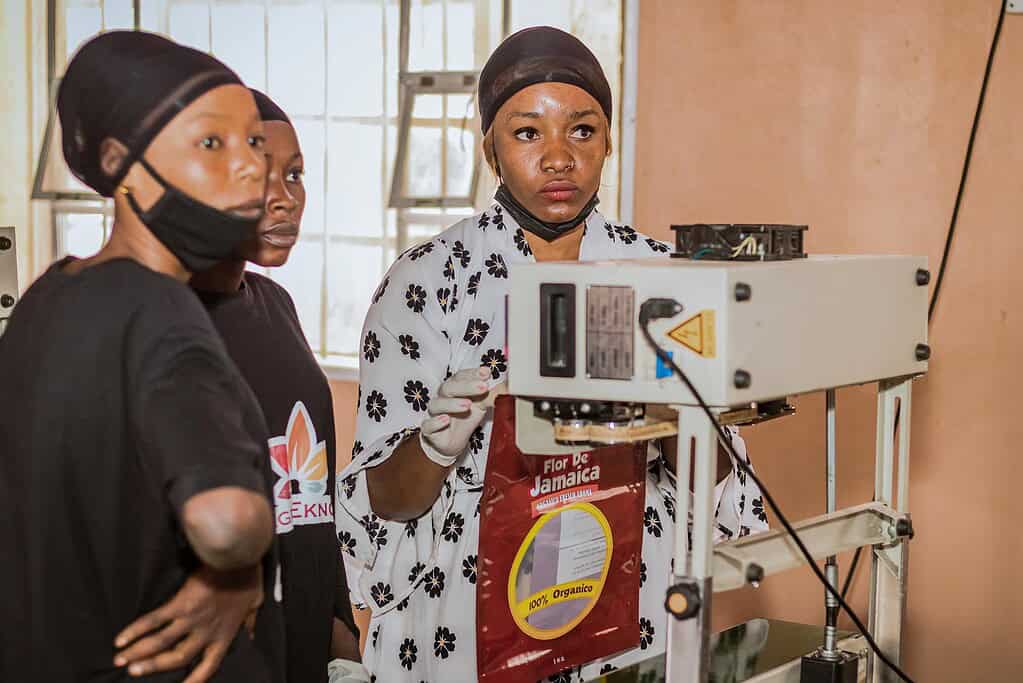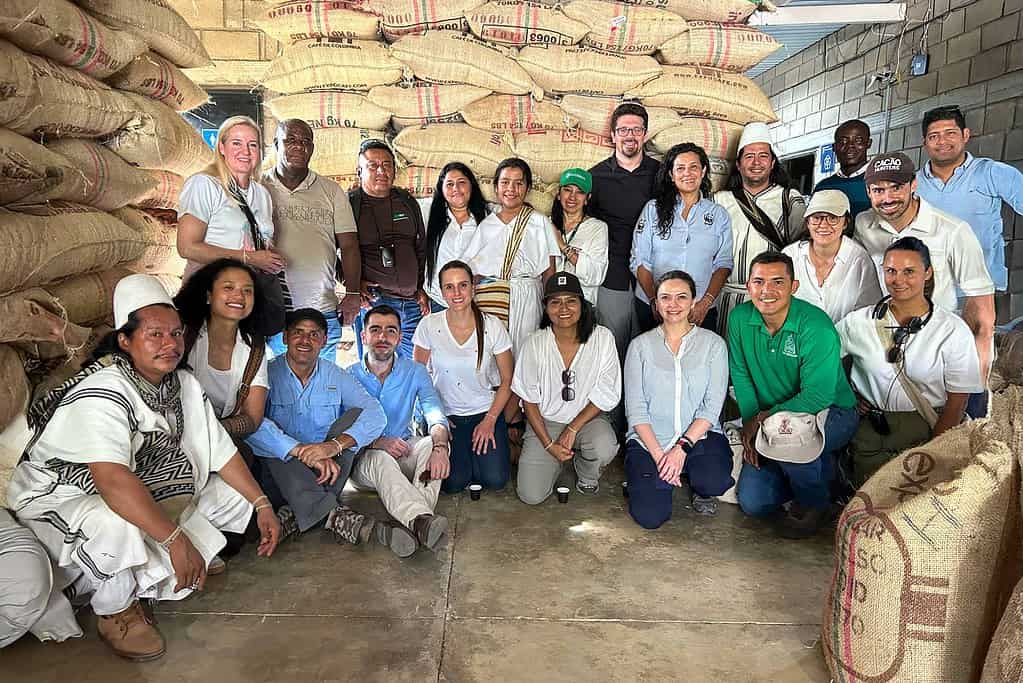Takeaways from Acumen’s 2023 Energy Summit
- Blog
- Renewable energy
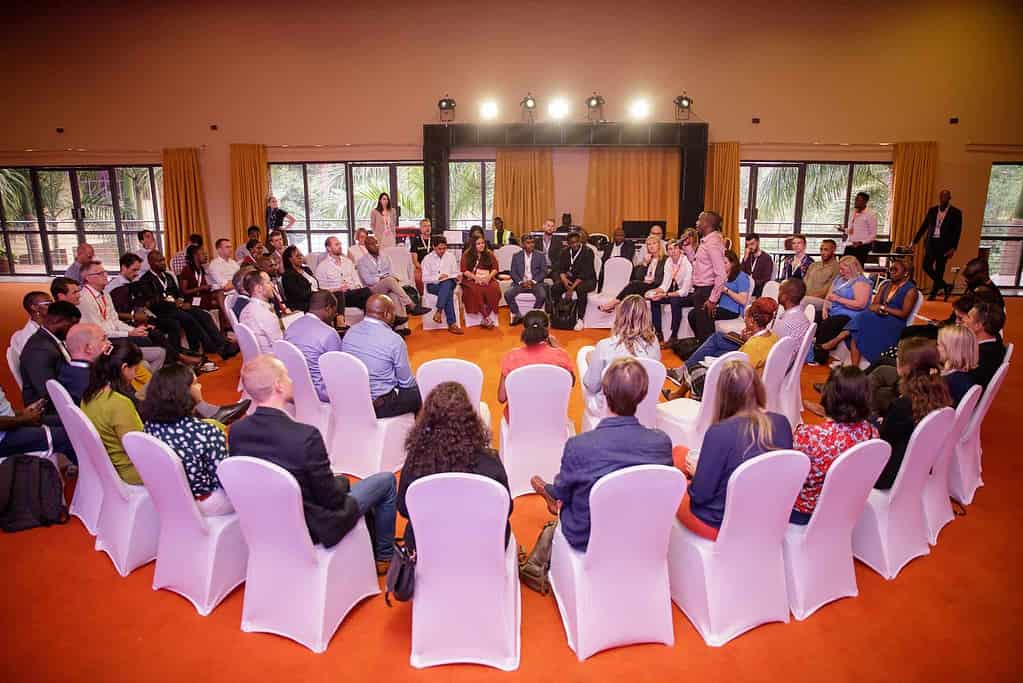
Globally, 733 million people still lack access to electricity. Although many will gain energy access in the coming years, research shows that, with a growing population, business-as-usual solutions will leave behind more than 600 million people by 2030, 85% of whom will be in Africa.
The off-grid solar sector can fill this gap. For over 15 years, Acumen has invested in energy entrepreneurs serving people living in poverty. Since we started, the sector has reached over 490 million people with energy access, creating more than 370,000 green jobs and avoiding 190 million tons of GHG emissions. Public and private investment has increased, the cost of solar panels has decreased, and products and services have improved, expanding the capabilities and affordability of off-grid solar beyond lighting and charging phones, to appliances that can drive incomes, such as freezers and irrigation.
But we must do more.
In Kampala, Uganda, 95 global energy leaders from 70 organizations, including 17 Acumen entrepreneurs, came together for the 2023 Acumen Energy Summit. These participants—entrepreneurs, investors, donors, and practitioners—are working to advance universal energy access and build energy solutions that support livelihoods and create pathways out of poverty. We held 11 sessions with a total of 25 speakers covering different topics across productive uses of energy, activating nascent markets, clean cooking, and the just energy transition in Africa, among others.
Here are nine takeaways from their discussions.
1. It’s Getting Harder, Not Easier to Reach SDG7—universal energy access:
Macroeconomic factors—such as currency devaluation and inflation—are huge challenges that further exacerbate customer affordability and the financial sustainability of off-grid solar businesses. If we want enterprises to prioritize impact for low-income customers when aiming for universal energy access, there will always be trade-offs, especially in emerging markets where macroeconomic contexts are in constant flux. As companies navigate these challenges, investors and donors need to build flexibility into their financing and acknowledge the on-the-ground realities that customers and companies face.
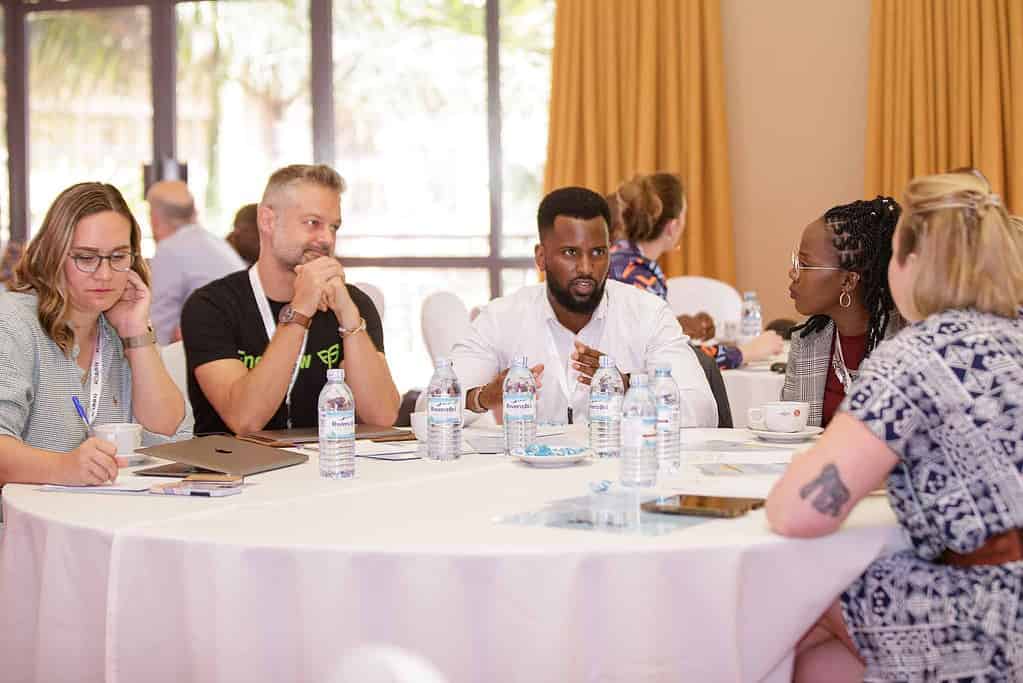
2. Capital is Not Enough:
More than 400M people that need to be electrified to reach SDG7 reside in countries with nascent or emerging energy access markets, primarily in sub-Saharan Africa (SSA). Commonalities in these countries include political and economic fragility, high poverty levels, and constrained capital markets. Addressing challenges in these hardest-to-reach markets requires more than just capital. It requires a country-by-country approach, relevant market intelligence, capacity building, political and regulatory support, and partnerships. To that end, Acumen launched the REACH Partnership alongside the World Bank ESMAP, Power Africa, GET.invest, Open Capital, and others, to coordinate our efforts to expand energy access in underserved markets in SSA.
3. We Need More Business Model Innovation:
The past decade has shown that combining technological advancements with innovative and inclusive business models can accelerate progress toward universal energy access and create a positive impact on sustainable development, poverty reduction, and environmental sustainability. Taking a customer-centric approach can drive further progress. Innovation is needed both in terms of market access and financing to improve livelihoods and the technology that enables those business models—from using IOT solutions for better after-sales services to building products that are more reliable and durable.
4. To Reach the Last Mile, Subsidies Are Essential:
We need better tools, data, and coordination to ensure subsidies are efficiently implemented. If we want to reach last-mile customers in nascent markets effectively, smaller players will need to be financed with patient, concessionary capital. Building the evidence base for how smart subsidies are extending the reach of the energy access industry can help improve and scale those programs to the countries that need them most.
“Results-Based Financing (RBF) mechanisms can often feel like something between a Band-aid and a sugar high. A proverbial Band-aid offers a surface-level fix to a problem; a sugar high may feel good in the moment, but doesn’t have true caloric substance. Given current macroeconomic challenges across Africa, RBFs may be what off-grid energy businesses need to get by in the short run. However, RBFs will not help these companies build sustainable business models.”
Ethan Kay, Managing Director of Emerging Markets, BioLite
5. Carbon Finance Can Help:
We have shown how carbon finance creates affordability and profitability for clean cooking companies. However, investing in companies leveraging carbon will risk fueling a bubble unless there is a predictable price driven by quality, measurable carbon credits, and committed buyers. There is potential to further utilize carbon finance in the off-grid solar sector but Patient Capital must first lay the groundwork to build and scale these models and more coordination is needed in the industry to unlock this opportunity.
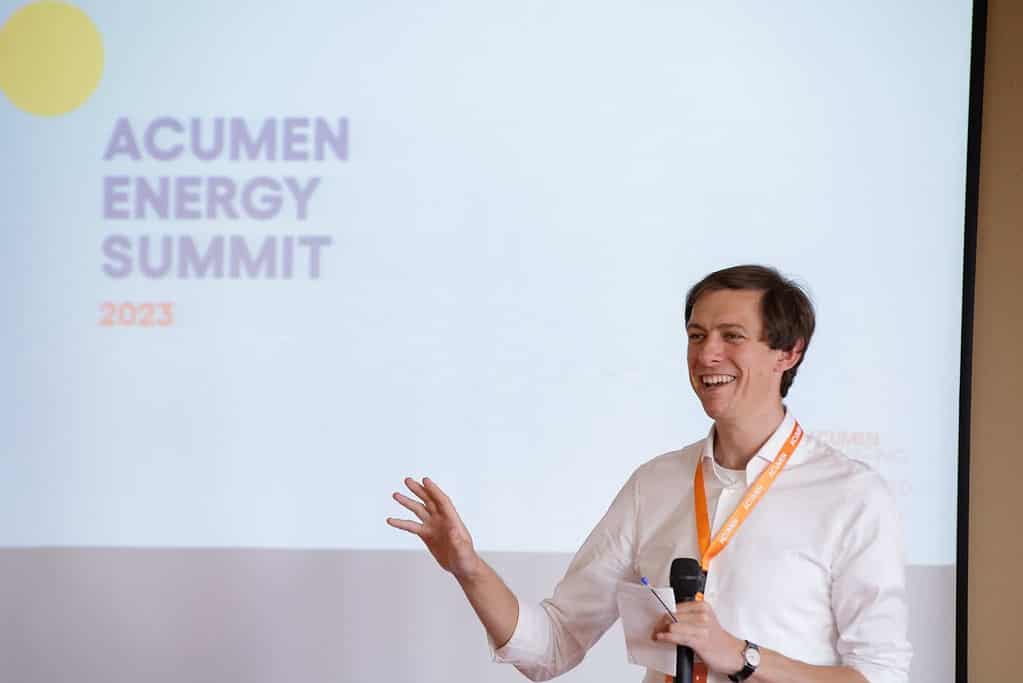
6. We Can Learn from Failure:
We need more safe spaces for talking about failure. We also need to be open to the idea that failure is part of progress—for donors, investors, and entrepreneurs alike. Continued research, data collection, and case studies are needed to drive innovation, improve impact measurement, and attract investments in the off-grid solar sector.
7. Technical Assistance Must Be Hands-On:
Entrepreneurs and investors must build long-term relationships and work in tandem to build up the core business, whether that is financial management, board development, human resources, internal systems, last-mile logistics, or other key operations. There is no one-size-fits-all approach. For the energy access sector specifically, there needs to be more non-financial support at the company level to improve operations, the sector level to create markets, and the policy level to ensure an effective enabling environment.
8. We Need Better Impact Measurement:
Understanding the impact that appliances have on incomes is essential if we want to improve the lives of people living in poverty. We can’t assume that new appliances actually provide economic value for low-income customers. But we also need to be careful not to overburden companies with reporting requirements. Investors and donors need to better coordinate to limit the time and effort companies have to commit to reporting.
“If we want to drill-down, dive-down, and understand more, we need to come together as a sector because one of the desires is to have a coordinated, consolidated, and standard way of talking about measuring, understanding and presenting impact.”
Kat Harrison, 60 Decibels

9. The Just Energy Transition is Unique in Africa:
There is a perceived tension between the need for energy for growth to combat poverty, and building a sustainable future. The Just Energy Transition in Africa will have to focus more on building resilience for Africa’s most vulnerable communities. The new generation of companies disrupting backup generators, innovating cold chains, and delivering low-cost EVs to transform transport need capital at scale. Yet to participate in broader capital markets and get access to cheaper, more plentiful capital, these companies need to offer more competitive returns to investors. At the same time, investors need to offer better terms and the public sector must ensure favorable conditions for this transition. KawiSafi Ventures is exploring opportunities for the capital spectrum to accelerate impact on the path to an inclusive low-carbon future in Africa, but truly achieving this transition will take all of us.
“We need to re-energize to the rest of the world that we matter here on the African continent and that we’ve got solutions for the challenges that are confronting us at our door. We can do something about it but we need support.”
Amar Inamdar, KawiSafi Ventures
We thank our incredible partners IKEA Foundation, Autodesk Foundation, Distributed Power Fund, and UK Aid from the UK Government via the Transforming Energy Access (TEA) Platform for making this event possible with their support of Acumen’s Pioneer Energy Investment Initiative: Powering Livelihoods Using Solar (PEII+).
More from our Knowledge Hub
Who pays for dignity? Rethinking India’s waste economy
Entrepreneurs can’t fix a broken system alone. Fair pay and safe work require investors, government, and brands to share the cost.
